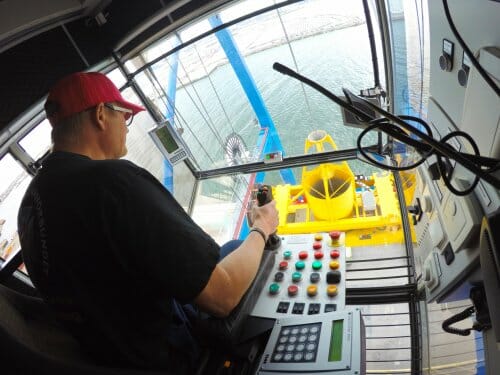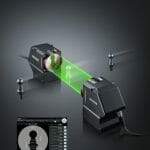Lifting a steel beam, moving a container or controlling a crane does not require much raw strength nowadays. On the contrary, what is required is dexterity and a joystick. Kristianstads Lyftdon AB in Sweden has long experience of producing ergonomic solutions for the operator cabins from which you control cranes and industrial operations. With the help of HMS Anybus technology, their new joystick can be used in industrial applications using PROFINET.
Kristianstads Lyftdon AB, or KLAB, are experts in ergonomic lifting and driver’s chairs for industrial use. They develop and build operator cabins for larger cranes used in the steel industry, heating plants, waste-handling stations, etc. With a focus on ergonomics, they produce everything needed inside an operator’s cabin — the most important operational part being the steering device itself, the joystick, which the operator uses to control the machine.
“We have been making joysticks since the start in 1978 and have a good idea of what the industry needs,” says Sven Holmer, owner and chairman of KLAB. And continues “When we designed our latest joystick, we wanted to provide it with bus communication. Previously, these solutions have often been hard-wired. As the industry is increasingly moving towards Ethernet communication and several of our major customers are in central Europe, PROFINET was the network we mainly wanted the joystick to communicate on. ”
Any network
KLAB’s technology partner recommended them to use Anybus CompactCom from HMS to enable the joystick to communicate on PROFINET. Just as the name suggests, Anybus allows the joystick to communicate on any network — fieldbus or industrial Ethernet. You can easily switch to another Anybus CompactCom and thus communicate on other networks such as EtherNet/IP, EtherCAT, Modbus-TCP or CC-Link IE Field. This opens up opportunities to sell the joystick in new markets, in other parts of the world.
“We start with PROFINET,” says Sven Holmer at KLAB, “but of course we also see new opportunities now that the joysitick can communicate on other industrial networks in other markets.“
Any form factor
Anybus CompactCom is also flexible in terms of form factor. Users can choose to integrate a chip that contains all the necessary software, or a so-called Brick including hardware and software for PCB mounting. A third alternative is a complete CompactCom Module which is simply plugged into the end product.
KLAB chose the Brick solution — Anybus CompactCom B40 — which suited the joystick well in terms of size, functionality and price.
Embedded web server makes data available
Another major advantage of the Anybus solution is that it has a built-in web server that allows KLAB to store data from the joystick — both for control and analysis. This means that KLAB and their customers can gain important insight into how the joystick is used by operators. This opens opportunities to refine and improve the product for different applications. The web server also makes it possible to access and configure the solution from anywhere.
Easy implementation
Sven Holmer describes the implementation of Anybus technology as relatively easy — From idea to finished and working product in about a year. “We could definitely have done it faster, but we have a lot to do and development projects like this often have to wait a bit,” says Sven Holmer. “However, we have not encountered any major problems and with good support from HMS, the communication solution came into place smoothly.”
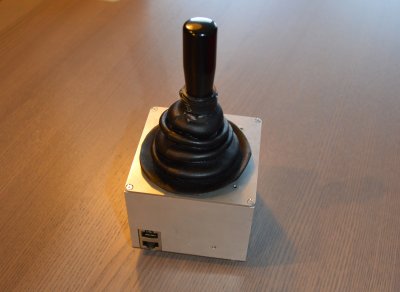
The joystick from KLAB can be built into any operator cabin. With Anybus CompactCom in place, it can communicate on PROFINET (and also any other network) which increases the potential market.
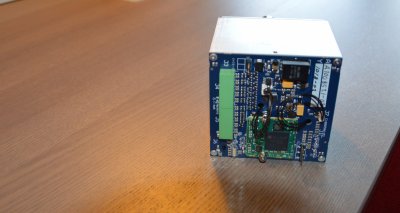
Under the joystick, we see Anybus CompactCom B40 for PROFINET (integrated at the bottom).
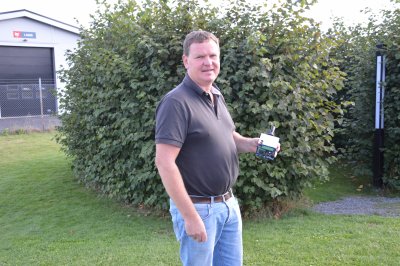
“We see new opportunities now that the joysitick can communicate on other industrial networks in other markets.” Says Sven Holmer, Owner and Chairman, KLAB.

